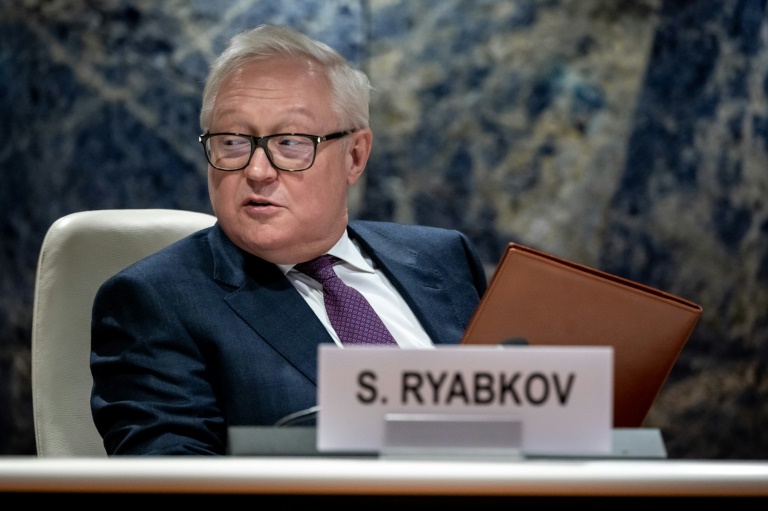US, NATO role in Ukraine risks ‘catastrophic consequences’: Russia

Russian Deputy Foreign Minister Sergei Ryabkov said the most acute strategic threat is ‘posed now by the US and NATO policy’
Geneva – The involvement of the United States and NATO in the war in Ukraine risks bringing “catastrophic consequences”, Russia warned Thursday in a speech boycotted by many Western diplomats.
Russian Deputy Foreign Minister Sergei Ryabkov told the Conference on Disarmament in Geneva that “the most acute strategic threat is posed now by the US and NATO policy aimed at further fomenting the conflict in and around Ukraine.”
“Their growing involvement in an armed confrontation is fraught with a direct military clash of nuclear powers with catastrophic consequences.”
Ryabkov spoke before a largely empty chamber, with many Western diplomats especially opting to symbolically gather for a nearby photo opportunity in front of a mural painted in the blue and yellow of the Ukrainian flag during his scheduled speaking time.
He was, however, spared the massive walkout that greeted his boss, Foreign Minister Sergei Lavrov, when his video address played before the Conference on Disarmament a year ago.
“We consider this as an extraordinary show of solidarity with the Ukrainian people who resist an unprovoked and unjustified Russia’s aggression,” Ukraine’s ambassador Yevheniia Filipenko told AFP.
“Until Russia takes its tanks out of the field of Ukraine… we are here to show support to our Ukrainian colleague,” British ambassador Simon Manley said.
“Their fight is our fight.”
– ‘Dramatically unstable’ –
The Conference on Disarmament, or CD, is the world’s most foremost multilateral disarmament forum. It was created in 1979 to try to stem the Cold War arms race.
The CD is not a UN body but meets at UN headquarters in Geneva for three sessions each year to discuss arms control and disarmament, with a focus on reining in the nuclear arms race.
But the statements delivered there have become increasingly combative since Russia’s full-scale invasion of Ukraine a year ago.
At the opening of the CD session on Monday, US under secretary of state for arms control and international security Bonnie Jenkins criticised Russia’s suspension of participation in New START, the last nuclear arms control pact between Moscow and Washington.
“Russia is once again showing the world that it is not a responsible nuclear power,” she said, warning that “we now face a dramatically unstable security environment that pulls us away from collective action here.”
Ryabkov insisted Thursday that Russia had no choice but to suspend its participation in the treaty, as “a total hybrid war (was) unleashed against us.”
“At the same time, as it was already stated, we will continue to comply with the quantitative limits on strategic offensive arms,” he told the CD.
Ryabkov was also expected to address the UN Human Rights Council later Thursday.
US Secretary of State Antony Blinken delivered a video address to that council Thursday morning, stressing the need for it to extend a high-level war crimes investigation, a so-called Commission of Inquiry, into Russia’s actions in Ukraine.
“As long as Russia continues to wage its war, the COI should continue to document such abuses, providing an impartial record of what’s occurring, and a foundation for national and international efforts to hold perpetrators accountable,” he said.
He also hailed that the council has decided to appoint an expert to monitor rights abuses inside Russia.
“Governments that commit atrocities abroad are also likely to violate the rights of people at home, and that’s exactly what Russia is doing.”
